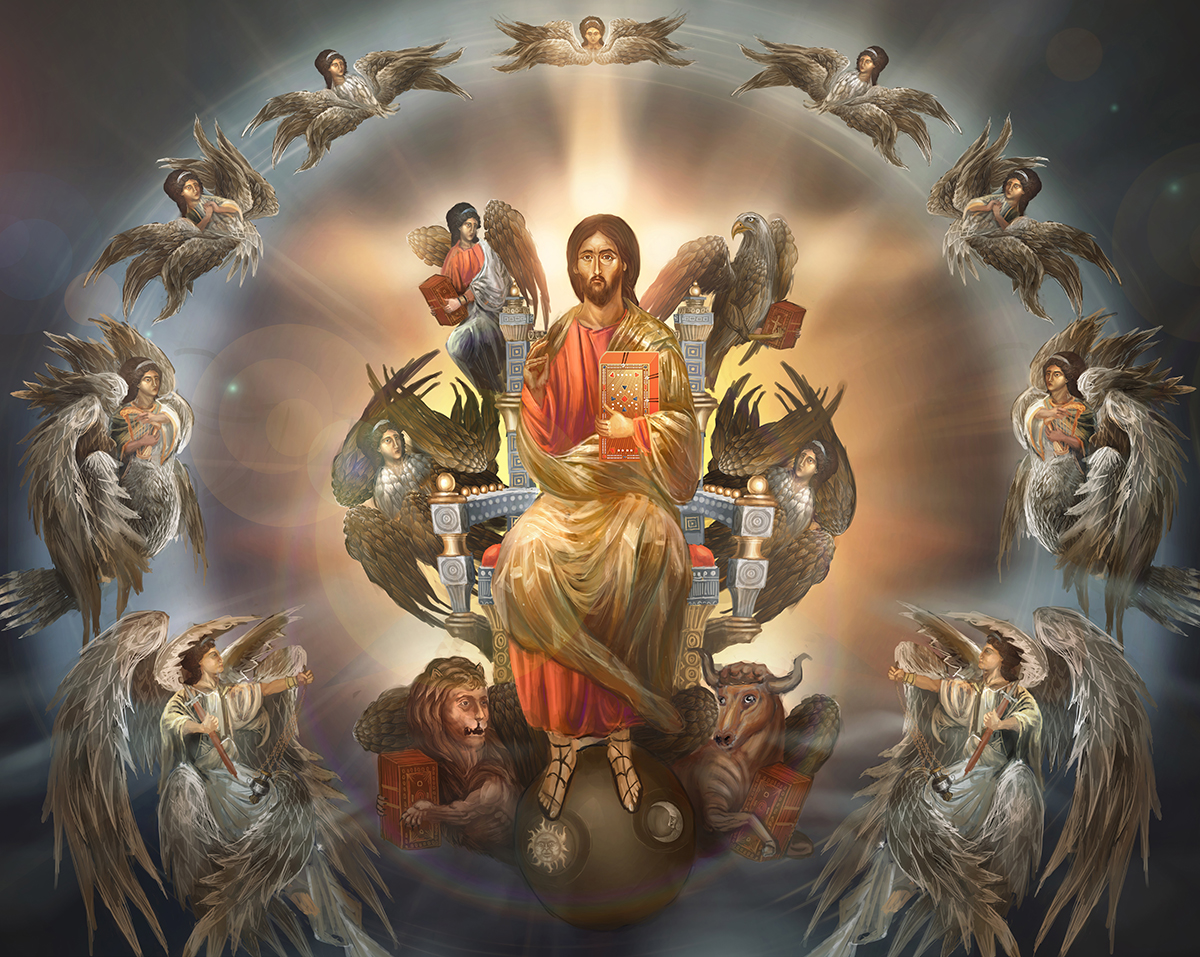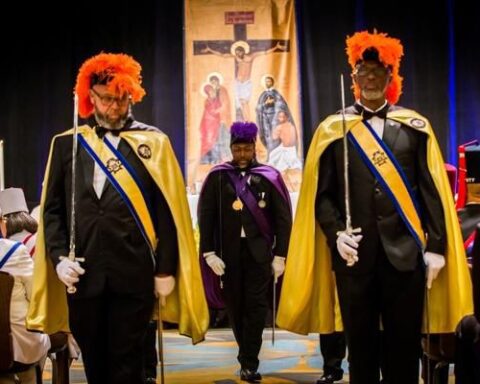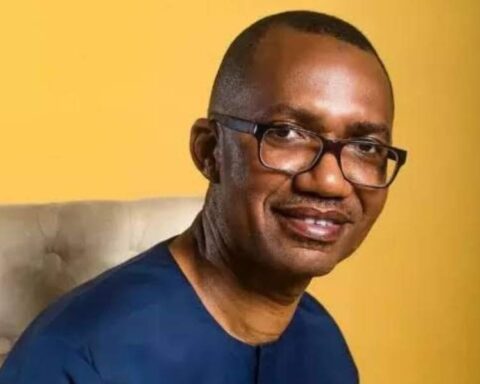Christ’s kingship as a flagship for Nigeria’s leadership deficit
By Emmanuel Gandu
HIGHLIGHTS
1. Empires, Kingdoms and Kingship
2. Segregation, Status, and Servitude
3. Leadership in Contemporal Nation States : Nigeria in focus
4. Nigeria’s leadership deficit
5. Kingship, leadership, and subjects : Christ the King as a flagship :
(a) A Kingly celebration for over 2000 years (b) Radical Jesus and servant leadership
5. Concluding Remarks EMPIRES, KINGDOMS, AND KINGSHIP. Throughout history Kingdoms, Empires, Monarchies, Caliphates, Chiefdoms, etc, flourished to greater heights partly due to the guidance and leadership provided by their rulers.
Often times due to the level of strength and or brutality of the leadership, who often sacrifice the life and blood of their subjects on the altar of governance.
These flourishing achievement was evidently and glaringly observable through the gallantry, heroism, strength, and prowess of their armies, forces and troops, especially in the frequency of battle fields, war, victories, conquests, annexation, and territorial expansionism.
While these situations persisted, the subjects were regularly exposed to severe conditions, groaning under excruciating dictatorial, totalitarian and unpopular Machiavellianism.
Therefore, kingship and leadership was not only seen but experienced as dominant agent of subjugation, as it was easily associated with oppressive, corruptive, even as retrogressive as to the elimination of opposition elements.
Today, in contemporary society these retrogressive vices and features of bad Leadership are unfortunately still very much with us, as the masses of the people and the marginalized are gravely at the receiving end.
Some of these older Empires and Kingdoms, many of them Monarchical include the following: Carthaginian Empire, Greek Empire, Egyptian Empire, Babylonian Empire, Assyrian Empire, Roman Empire, British Empire, Umayyad Empire, Spanish Empire, Russian Empire, Mongol Empire, Ottoman Empire, Kingdom of Morocco, Sokoto Caliphate, Yoruba Empire, Kanem Borno Empire, and Mali Empire.
SEGREGATION, STATUS, AND SERVITUDE
Unfortunately, and as worrisome as could be experienced in many other situations and climes across the world, the governed were subjected to servitude by the rulers.
This gave rise to master and servant status, free born and slave status, first class and second class status, royalty and commoner status, aristocrat and proletariat status, blue bloods and ordinary people status, feudal lords and serfs status, and etc.
Regrettably, these class symbol stratification and structures still exist in the society today. Unfortunately, these are some of the major factors leading to series of violent struggles by the marginalized classless peoples in order to free themselves of the chains and shackles from the oppressors for their freedom so that they can eke out a little for their survival.
LEADERSHIP SITUATION IN CONTEMPORARY NATION STATES : NIGERIA IN FOCUS
Characteristics of leadership in modern Nation States have assumed a notoriety for visiting violence on their people so much so that the precarious situation leaves much to be desired. The spate and rate of state sponsored terrorism, the inability or refusal of governments to end acts of terrorism, the rising cases of high profile corruption and financial/economic banditry is as worst an offence as murder.
These acts of official dereliction of responsibility smacks of leadership failure. Surely, these acts of sabotage perpetrated by leaders aggravates the level of loss of life and property, hunger, economic deprivation, unemployment, and have therefore reduced humanity to the state of anomie.
Of inglorious ignominy to the Nigerian situation is the use of all forms of political terrorism by the leadership and political class to manipulate the vulnerable populace through the use of state force and other coercive measures to perpetuate themselves in Power. Little wonder, this creates a situation of hopelessness and helplessness that subdues people to resign themselves to any available situation.
The most appalling evidence of leadership failure is that Nations like Nigerian are yet to be free from leaders that deploy all forms of dictatorial, machiavellian, and totalitarian policies in governance that ultimately leads to human rights violation.
Unfortunately, the resultant effects and consequences of all these friction between the leaders and the led is the rise of a radicalized citizenry with a fast growing army of radical extremists, opposition activists, war lords and freedom fighters that have ultimately turned the world into various vicious enclaves and theatres of war.
NIGERIA’S LEADERSHIP DEFICIT From independence, Nigeria had her own share of good/effective leadership at the National, Regional, and State levels were the best of life was assured and ensured for the citizens.
However, a lot more of other leaders at the helm of affairs did not care a hoot for the people. While Nigeria’s founding fathers were developmental and incorruptible in their approach to governance, same cannot be said for the others after them.
General Yakubu Gowon ensured the unity of Nigeria after the 30 months civil war of 1967 – 1970, thereby attracting the name in that popular Go On With One Nigeria acronym that spelt his name (GOWON).
MURTALA MOHAMMED AND OLUSEGUN OBASANJO Generals Murtala and Obasanjo rekindled Nigeria’s status as the giant of Africa especially in their vibrant and robust local and foreign policy where they ensured the principle of non alignment, Africa as the corner stone of Nigeria’s foreign policy, the struggle to free South Africa from apartheid, and the independence for Angola.
SHEHU SHAGARI On the other hand, the second republic that brought in President Shehu Aliyu Shagari came with a new strand of corruption infested polity that Nigerian politicians of the time found it too tempting to resist.
That corruption seed nurtured by elswhile Transport Minister Dr. Umaru Dikko in his denial that Nigeria could have been eating from the dustbin if the country was impoverished. Little did Umaru Dikko realized that Nigerian population of hungry children, youths and adult scavengers from 2015 to 2024 would not even find any left overs of stale food crumbs in the dustbin to quench their pangs of hunger.
IBRAHIM BABANGIDA AND SANI ABACHA General Sani Abacha who rode on the back of step-aside General Ibrahim Babangida’s annulment of MKO’s June 12 mandate was as brutal as the Maradona. This duo of dictatorial military Junta sent many opposition elements including the acclaimed winner of June 12 MKO Abiola, Kudirat his wife, and many NADECO advocates to their early graves.
MUHAMMADU BUHARI Unfortunately, president Muhammadu Buhari who rode to power in 2015 courtesy of a national mandate as a result of his good performance as military Head of State turned his back on the generality the Nigerian people. President Muhammadu Buhari, rather than giving Nigerians good governance turned out to be the worst president Nigeria ever had:
(1) Pursued a highly nepostic Fulani/Hausa agenda.
(2) Handed over a Nigeria that boasts of the 3rd most terrorist country in the world after Afghanistan and Iraq – (Global Terrorism Index 2020)
(3) President Muhammadu Buhari opened Nigeria’s borders to his kith and kins Fulani herdsmen militia who’s stock in trade is the killing farmers, burning down their crops and villages for the purposes of occupying such communities, thereby aggravating the scarcity of food and causing hunger, deprivation, insecurity, and poverty.
Since from 2015 to date, Nigeria is infiltrated by Fulani herdsmen turned militia, who came with the menace of banditry, kidnapping, cattle rustling, and the dreaded armed gunmen who kill and maim with reckless abandon.
(4) By 29 May, 2023, Buhari handed over a debtor, impoverished, and beger nation with a debt burden of #121.4 Trillion, a debt that is comparatively unrivaled by no other country in the world.
(5) During Muhammadu Buhari’s presidency, the number of out-of-school children rose astronomically from less than 10 million during the Umaru Yar’Aduwa / GoodLuck Ebele Jonathan’s regime to a disappointing 18 million, with majority of these coming from his own North. Comparatively, Nigeria top the list of out-of-school children in Africa (in millions):
1. Nigeria 18.18 million
2. Ethiopia 11.1 million
3. Tanzania 6.42 million
4. DR Congo 6.17 million 5. Sudan 5.6 million
6. Niger 5.5 million
7. Uganda 4.9 million
8. Angola 3.9 million
9. B/Faso 3.4 million
10. Mali 3.1 million Who would ever imagine that Nigeria, the largest economy on the African continent, the 7th world oil producer, the giant of Africa will top these poor African countries on the issue of out-of-school children ?
(6) Muhammadu Buhari handed over a divided Nigeria with so many fault lines including religious, tribal and regional thereby increasing hatred for others, and jeopardizing national cohesion. Buhari supervised and succeeded in putting a knife on the things that held us together and we’ve fallen apart.
(7) His 8 years (2015 – 2023) spending of a whopping sum of $26.5 Billion dollars on Turn Around Maintenance (TAM) of the country’s 3 refineries at Port Harcourt, Warri, and Kaduna without a single drop of oil as at end of November 2024 is the height of lawlessness and corruption by any president, only next to the infamous Abacha loot. Regrettably, you will weep to know that these 3 refineries have a combined total of refining capacity for 445,000 barrels per day, and experts on energy and construction of refineries had recommended to Buhari’s government for this $26.5 Billion dollars be rather spent on building three new refineries of same size each of the ones in Port Harcourt, Warri, and Kaduna but this suggestion was turned down. This reckless action of the Buhari presidency unfortunately put Nigeria on an endless importation of refined petroleum products, even with the attendant corruption spree.
It remains to be seen how Muhammadu Buhari, a one time war commander during the Nigerian Civil War, a former petroleum minister, a former military governor, a one time GOC, a one time Chairman of Petroleum Trust Fund (PTF), and a two term civilian president (2015 – 2023) who doubled as petroleum minister will explain to Nigerians the where about of the TAM $26.5 Billion dollars.
BOLA AHMED TINUBU Lamentably, president Bola Ahmed Tinubu is left with the option of damage control on the economy of a Nigeria that is already hanging on the precipice. However, with his government penchant for borrowing, spending, and squandarmania, president Bola Tinubu is already setting the record of the highest debtor president with the most foreign debts under 2 years of any Nigeria’s presidency. To make matters worst by putting salt into injury, Tinubu’s sudden withdrawal of oil subsidy without adequate planning to ameliorate the attendant side effects on the people brought in a grave and deadly hardship on Nigerians.
Reports from across the country suggest that the death toll as a result of the hardship, hunger, and poverty arising from effects of this oil subsidy removal is so monumental that the cemeteries and grave yards are overwhelmed.
One wonders the reasons for this sudden withdrawal of oil subsidy, if not the president’s penchant for the following expenditure just within a year of his coming to power of his presidency:
1. Purchase of Presidential Jet – #150 billion
2. Purchase of SUV cars – #160 billion
3. Construction of Lagos-Calabar coastal road – $13 billion
4. Renovation of VP house – #21 billion
5. Purchase of Presidential Yacht – #5 billion Not done, all the following massive loans in just two years:
1. $750 million in June 2023,
2. $800 million in July 2023,
3. $7.4 billion + €100 million in December 2023,
4. ₦2.94 trillion borrowed from July to December 2023,
5. ₦6.53 trillion between December 2023 and March 2024,
6. $2.7 billion approved across 2023–2024,
7. $2.25 billion in June 2024,
8. $500 million in July 2024,
9. $1.57 billion in September 2024,
10. $6.45 billion total from World Bank by September 2024,
11. $2.209 billion in December 2024 for budget deficit,
12. And a shocking $21.5 billion + €2.1 billion + ¥15 billion approved in July 2025 Lamentably, Nigeria still shows no significant growth. No steady power.
No working infrastructure. No improved standard of living. No end to the endless killings and kidnapping. This is a national disgrace. A clear failure of leadership.
Leaders who truly mean well for their countries do not borrow endlessly KINGSHIP, LEADERSHIP AND SUBJECTS :
CHRIST THE KING AS A REFERENCE POINT (1) A KINGLY CELEBRATION OF OVER 2000 YEARS For the past well over two thousand years ago, the world has been celebrating Jesus and his reign as King in : (a) During advent when we wait for his second coming – Mark 1, Luke 1, Matthew 1, Isaiah 11, Zachariah 5, Micah 5, Malachi 3. (b) At Christmas when born as King of the Jews – Luke 2, Matthew 1. (c) At Holy Week when he is the crucified King – Matthew 27, Mark 15, Luke 23, John 19. (d) At Easter when he is resurrected in Power and Glory – Mark 16, Matthew 28, Luke 24, John 20, and Acts 1. (e) At the Ascension when He returns to the Glory he had with the Father – Mark 16, Luke 24, and Acts 1.
(2) RADICAL JESUS AND SERVANT LEADERSHIP Do we have servant leaders in the Nigeria of today? We may be disappointed in our civil/political, military, religious, and the traditional Leadership especially the way and manner of Kingship in the Nigerian society.
However, we must recall that Jesus radically redefined the nature of leadership and kingship in his kingdom when he said – “Rather, whoever wishes to become great among you will be your servant.
Whoever wishes to be first among you will be the slave of all. For the Son of man did not come to be served, but to serve, and to give his life as a ransom for many.” — Mark 10 : 42 – 45.
As Christians celebrate the feast of Christ the King instituted by Pope Pius XI in 1925 in honour of Jesus as Lord, and the authority of Christ as King, and Messiah of the Universe, we will be reminded of several situations that plague our humanity.
May we therefore, be reminded that in our position as leaders and followers, politicians, civil servants, rich and poor, teachers and students, priests and preachers, armed forces and civilians, business men and women, farmers, unemployed, housewives, parents, children, rich and poor, etc, of our duties and responsibilities to one another.
We will be expected to do all that is humanly possible to our fellow man so that Christ will reign in our hearts, minds, wills, and bodies.
CONCLUDING REMARKS May the blessings that come with this celebration take away the agony of the hardship imposed by human and leadership failure in the world and Nigeria in particular. Peace



























